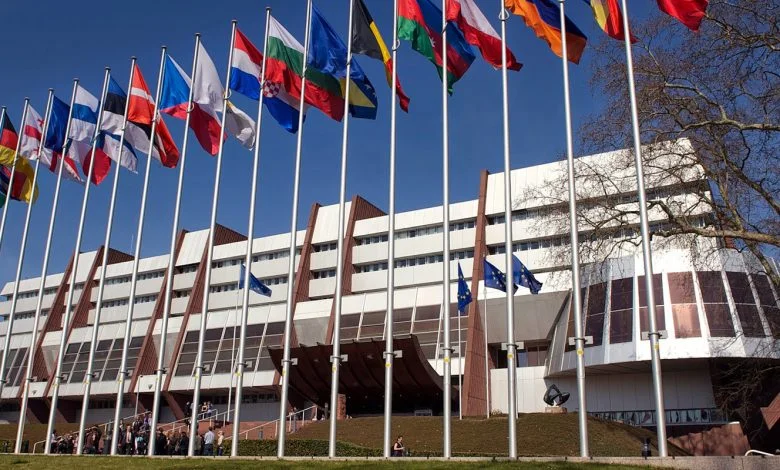
CoE Committee of Ministers Urges Prompt Investigation into Pending Tsintsabadze Group Cases
On March 12-14, the Committee of Ministers of the Council of Europe expressed “serious concern” over the lack of promptness in Georgia’s exaction of the ECtHR judgments during the discussions on the Tsintsabadze Group cases, which concern deaths, torture and other forms of ill-treatment and ineffective investigation of these acts, most of which were attributed to law enforcement and prison officials.
The Committee of Ministers closed the supervision of the cases of Mzekalishvili, Kopadze, and Chantladze because the Georgian authorities “complied with their undertaking in the friendly settlements to carry out new investigations.” They also closed the cases of Tsintsabadze, Mindadze, and Nemsitsveridze, as well as Mikiashvili (as regards the events of 2006), because further investigation in these cases is impossible due to “the absence of possibilities for obtaining additional evidence as well as the expiry of the statute of limitations”.
The Committee of Ministers noted the progress in the investigation of the Sgt. Roin Shavadze’s 2008 Homicide Case, however “expressed serious concern over the lack of promptness in the other pending investigations and strongly urged the authorities once again to take all the necessary measures to complete them speedily and thoroughly.”
The Committee also requested the Georgian authorities to “submit consolidated information on all pending investigations, including on the steps taken or foreseen to overcome obstacles encountered, and planned investigative measures to achieve concrete results”. In addition, the Committee suggested that the authorities ensure the expeditious re-examination of the case files of Machalikashvili and others and Ochigava, and inform the applicants and the Committee of the decision to reopen these investigations.
Committee of Ministers Recommendations
The CoE Committee of Ministers calls on the Government of Georgia to strengthen the independence and effectiveness of the Special Investigative Service (SIS) by “further aligning its remit with the institution’s primary role of investigating serious human rights violations committed by state agents and by ensuring a stronger independence of the SIS from the prosecutorial authorities.”
The Committee also notes that, despite the satisfactory decision of the Constitutional Court to increase the possibilities for victims to seek judicial review of prosecutorial decisions, serious concerns remain about the persistent shortcomings in the granting of formal procedural status to victims, which remains a prerequisite for their meaningful participation in investigations. The Ministers urge the Georgian authorities to take legislative or practical measures to address this issue in a systematic and sustainable manner.
The Committee of Ministers urges Georgia to enact legislative changes to prevent impunity and ensure compliance with Convention requirements. It also calls for strengthening safeguards against ill-treatment, including expanding video/audio recordings of interactions between law enforcement and individuals, and providing comprehensive statistics on investigations and the granting victim status and suspension of state agents during the investigation.
Machalikashvili and others v. Georgia
18-year-old Temirlan Machalikashvili was shot in the head in the process of his detention in December 2017. Machalikashvili died of his injuries in January 2018 in a Tbilisi hospital. According to the State Security Service of Georgia (SSG), he attempted to resist the security forces and tried to detonate a hand grenade, to which the SSG operatives responded with “proportional force.” Machalikashvili’s family denies this and claims he was asleep when officers entered his room and opened fire.
The local watchdog and defender of Machalikashvili’s rights, the Social Justice Center (SJC), reported on March 20 that the recommendations of the Committee of Ministers are fully in line with the demands of Georgian civil society organizations to the government. SJC noted that for 11 months it and Machalikashvili’s family have been unsuccessfully requesting that the Special Investigative Service reopens the case.
With this aim, the watchdog has submitted to the SIS a list of important investigative measures, the implementation of which is of “crucial importance” in the context of the new investigation, and also requested the opening of a new investigation into the falsification and destruction of evidence. However, the SIS has left the requests unanswered, “which raises reasonable doubts about the independence of the said service,” SJC noted.
“We call on the authorities, in accordance with the recommendation of the Committee of Ministers, to immediately reopen the investigation into the case of Temirlan Machalikashvili and to ensure that all necessary investigative measures are taken,” stressed SJC.
Also Read:
- 20/11/2023 – Human Rights Watchdog Urges Swift Action on ECHR Ruling for Machalikashvili Case Investigation
- 06/04/2023 – CoE Report Says “Lack of Legislative Reform” in Georgia
- 28/01/2020 – Prosecutor’s Office Terminates Investigation into Machalikashvili Case
- 13/01/2020 – Watchdog Assesses Machalikashvili Case Materials Containing State Secrets
- 01/10/2019 – ECHR Launches Consideration of Machalikashvili Case
This post is also available in: ქართული Русский